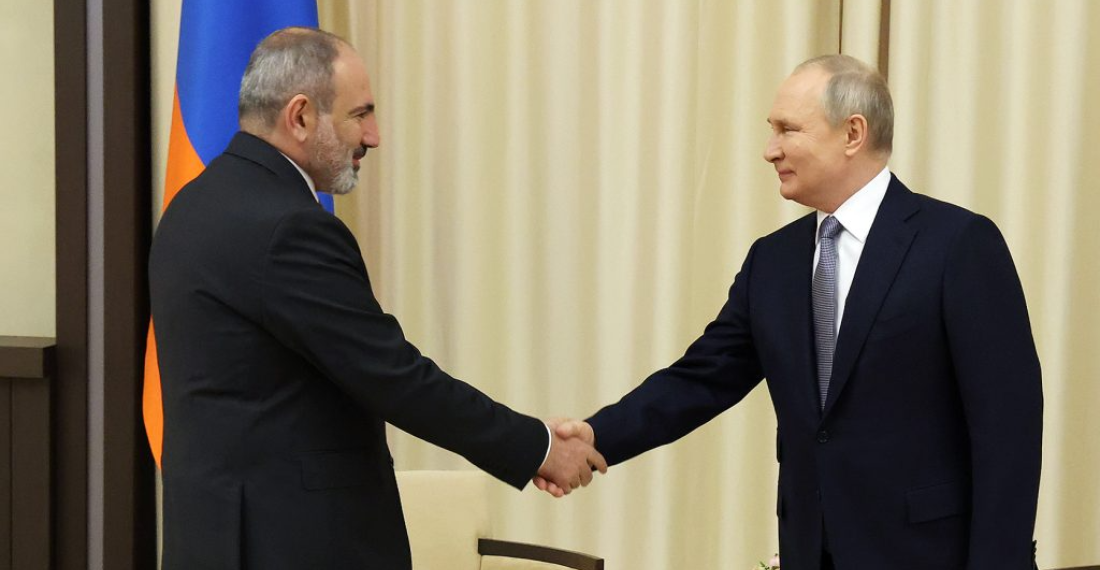Armenian Prime Minister Nikol Pashinyan yesterday (5 July) held a phone call with Russian President Vladimir Putin to discuss the situation on the Lachin Corridor, some eight months after Azerbaijan - in one way or another - began exerting control on traffic along the road connecting Armenia to Nagorno-Karabakh.
According to the Kremlin’s readout of the call, Pashinyan and Putin focused on "the situation around Nagorno-Karabakh, including issues of ensuring unimpeded traffic through the Lachin corridor".
Putin repeated Russia's insistence on the need for "consistent implementation of the entire set of agreements between the leaders of Russia, Armenia and Azerbaijan reached in 2020-2022", and also reaffirmed Moscow’s readiness to "provide practical assistance in the drawing up of the Armenian-Azerbaijani peace treaty."
Meanwhile, the Armenian government released their own short statement of the call, saying only that "the humanitarian crisis in Nagorno-Karabakh resulted by the illegal blocking of the Lachin Corridor and ways to overcome it were discussed."
Since December 2022, Armenia and de facto Nagorno-Karabakh authorities have accused Azerbaijan of blockading Nagorno-Karabakh, and reports of shortages of key supplies of food, fuel and medicine have been consistent and growing. Azerbaijan meanwhile insists that the situation does not constitute a "blockade" of Nagorno-Karabakh.
Later that day, de facto President of the self-proclaimed Nagorno-Karabakh Republic Arayik Harutyunyan said that he had requested that Prime Minister Pashinyan call President Putin.
In a meeting with de facto officials on Wednesday, Harutyunyan is reported to have said that they "are making every effort to manage the situation within our limited capabilities, implementing action plans based on various scenarios."
He added that Stepanakert "remains committed to a constructive approach and is prepared to discuss and resolve all issues through civilized dialogue and peaceful means".
Grigoryan and Hogan meet in Washington D.C., stress importance of international mechanism for Stepanakert-Baku dialogue
Also on Wednesday (5 July), the Secretary of the Security Council of Armenia Armen Grigoryan held a meeting with Dereck J. Hogan, the Principal Deputy Assistant Secretary in the Bureau of European and Eurasian Affairs at the U.S. State Department.
In a readout of the call from Grigoryan's office, they said that they "discussed “the Armenia-US bilateral relations agenda, including prospects of economic cooperation".
Grigoryan and Hogan also attached importance to preserving regional security, the continuity of the Armenia-Azerbaijan peace talks, as well as the creation of an international mechanism for Stepanakert-Baku dialogue and ensuring the rights and security of the Armenian population of Nagorno-Karabakh, according to the readout.



